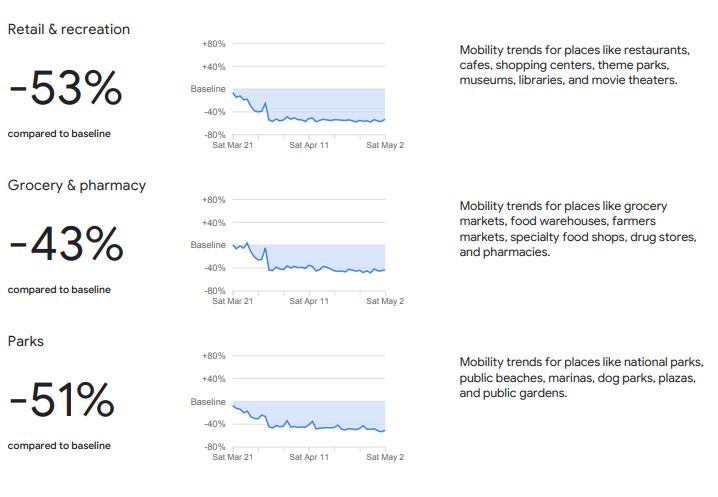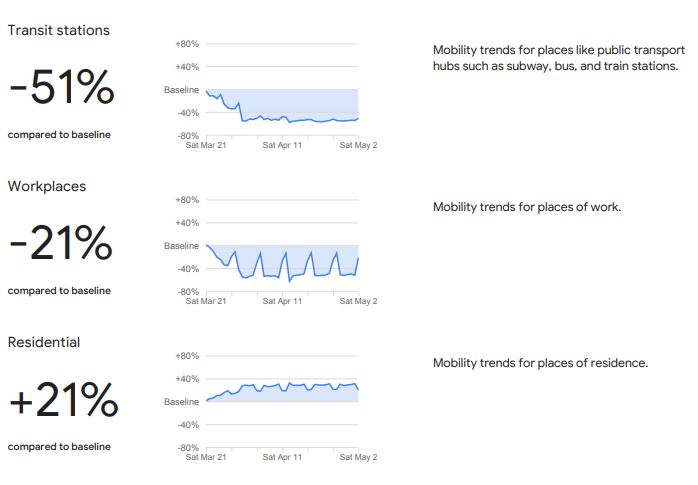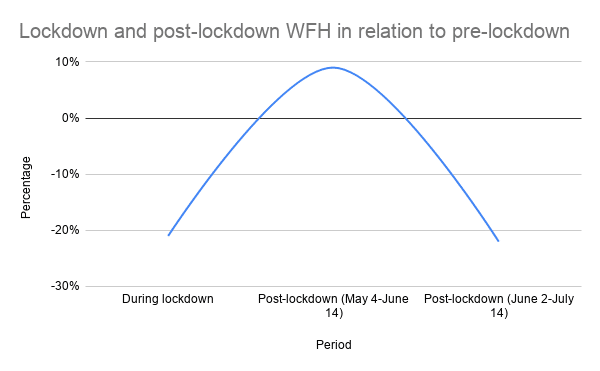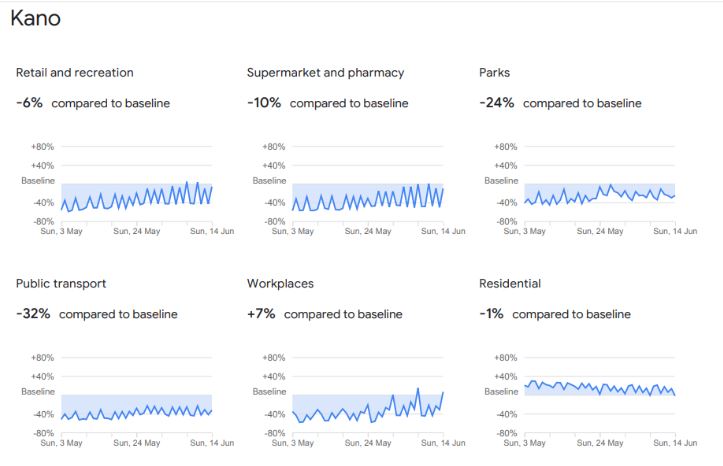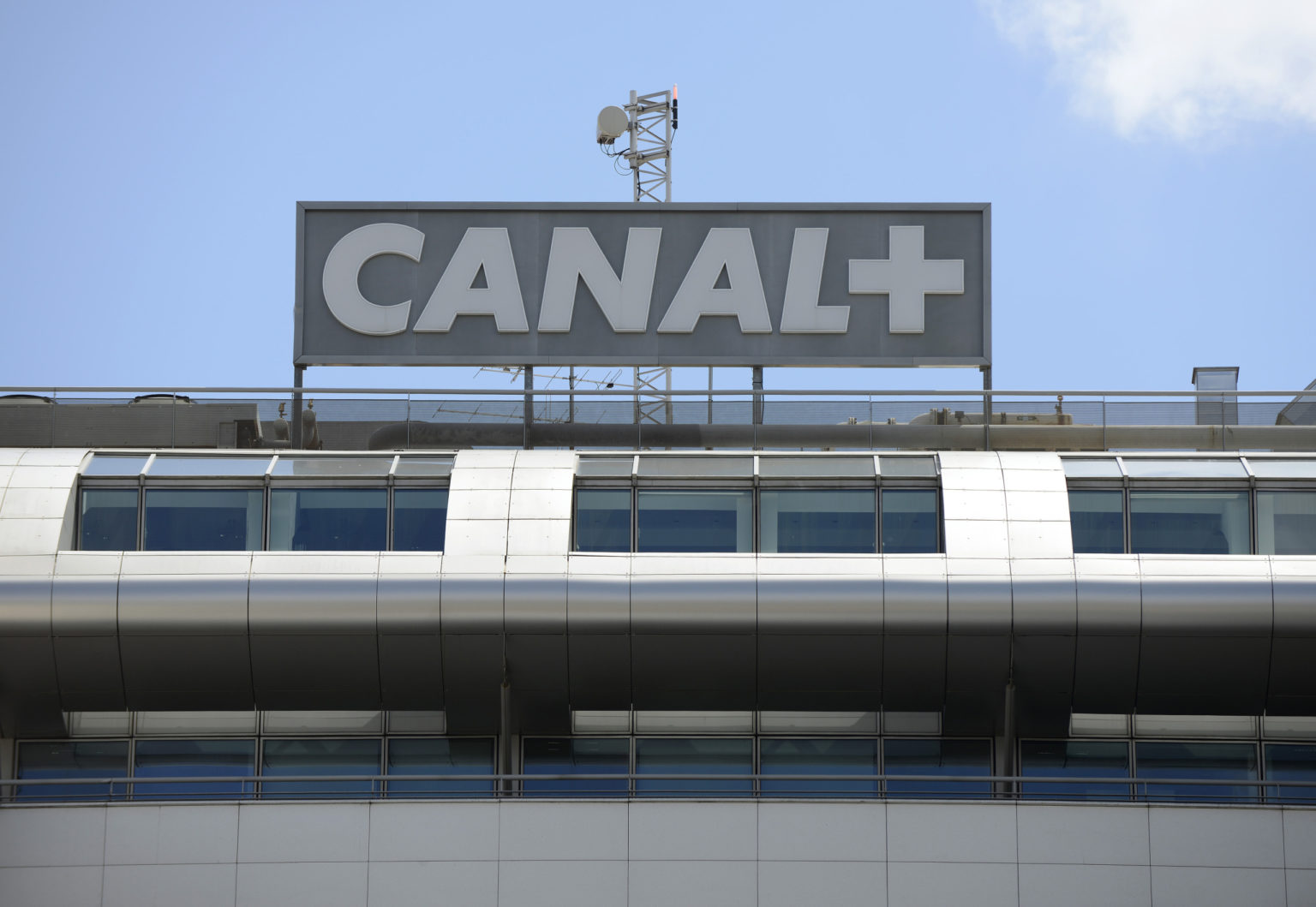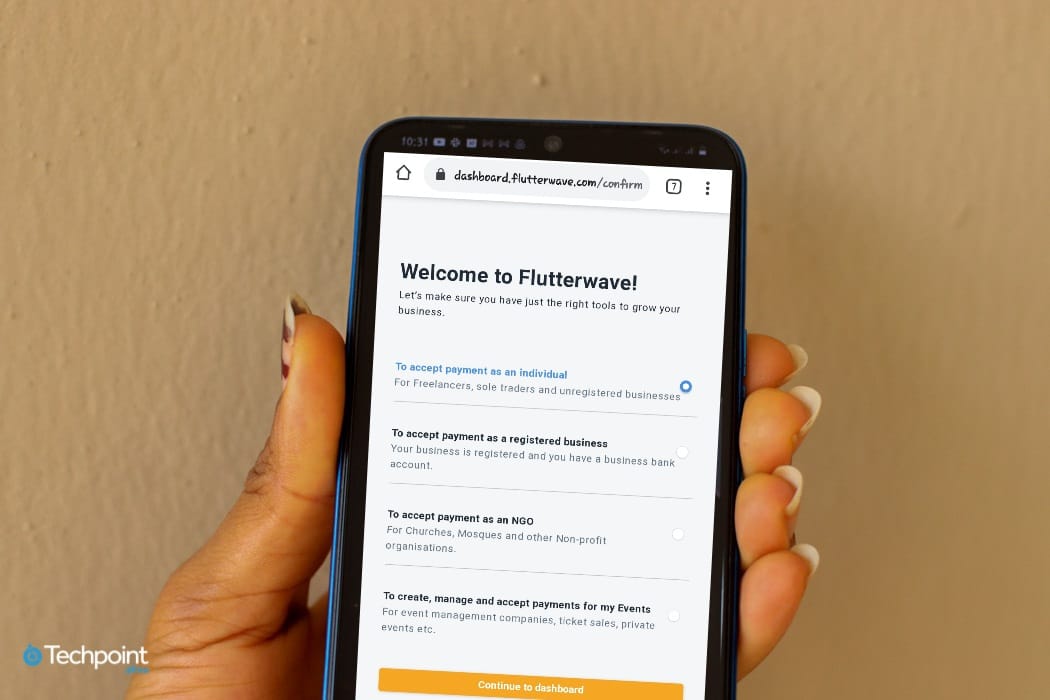When countries began lockdown, Google released a set of reports: COVID-19 Community Mobility Reports. According to the company, this was to give insights into the activities of people around the world with regard to retail, shopping, recreation, transport, work, and staying indoors.
The report, which was put together by making use of aggregated and anonymised data shared by Google’s users, covers over 100 countries and compares their community mobility before and during the pandemic.
"Insights in these reports are created with aggregated, anonymised sets of data from users who have turned on the Location History setting, which is off by default.
People who have Location History turned on can choose to turn it off at any time from their Google Account and can always delete Location History data directly from their Timeline," an excerpt from the report reads.
When we first reported this in May, our findings highlighted significant dips in Nigerian’s activities across five of six categories. And the figures compared activities in high-impact areas from March 21 to May 2 (during the lockdown), to a baseline of January 3 to February 6 (pre-lockdown).
Working from the workplace or from home
On average, Nigeria experienced a 21% drop in workplace activities, the least drop across the six categories. This means some employees of companies providing essential services, for instance, still went to work.
On May 4, Nigeria began its "phased and gradual" easing of lockdown measures across the country. This decision stemmed from the fact that the lockdown largely affected businesses and livelihoods.
While the government made its decision to lift the lockdown, consequently permitting people to resume work, some employers made a different one.

Suck at managing people?
Give it a try, you can unsubscribe anytime. Privacy Policy.
For instance, speaking with Techpoint Africa at the time, Oluyomi Ojo, Printivo CEO, said he encouraged his staff to continue working from home for the time being.
"For companies that are 100% software, pushing for remote work is great. Let’s be clear, the world is experiencing a pandemic and keeping people off the streets is great for everyone. If your processes allow delivery via remote work, keep people at home.”
But not every company made that decision and the following month, people returned to work en masse.
From Google's mobility report on June 14, workplace activities across the country increased by 9% compared to the pre-lockdown baseline.
From a report by Nigeria COVID-19 National Longitudinal Phone Survey (COVID-19 NLPS) in partnership with the National Bureau of Statistics (NBS), we can understand why this happened.
The report is a monthly survey of 1,950 households to monitor the economic impact of the pandemic. So far, it has carried out surveys in parts of April and May, and then from June 2-16, 2020.
From the survey, 43% of the respondents said they worked actively during the lockdown. Before the lockdown, this value was 84%; post-lockdown, it went back up to 71%.
In essence, as the lockdown eased, Nigerians returned to work at their physical locations. A few people might question the logic behind this because of the rise in coronavirus cases, but the fact remains that some Nigerians still need to go to work because their jobs can’t be done remotely.
How the FCT, Kano, and Lagos compare
Additionally, the report highlights a fact that we've had to come to terms with during this period: some Nigerians lost their jobs. This, coupled with a rise in adoption of telecommuting, would explain the numbers in July.
In July, the country’s workplace activities reverted to 'lockdown’ numbers as it witnessed a 22% drop when compared to the pre-lockdown baseline.
This is akin to the figures at the state or city level. Here's how the numbers look in the Federal Capital Territory (FCT), Kano, and Lagos.

When compared to activities pre-lockdown, workplace activities in the FCT dropped 27% during the lockdown. They increased by 11% post-lockdown but have dipped again by 23% when compared to the pre-lockdown baseline.
Kano saw a 47% drop in May when compared to the pre-lockdown baseline. As people went to their workplaces in June, it reflected in a 7% increase but dropped 19% in July.
Also, to digress a bit, residential activities in Kano paint an interesting picture. Remember when the federal government extended the lockdown by almost a month in Kano? It seems that decision affected their numbers and people in Kano couldn't wait for the lockdown to be lifted as residential activities in the city decreased by 1% when compared to the pre-lockdown baseline.
Back to workplace activities, Lagos witnessed a 38% drop during the lockdown, it increased by 4% post-lockdown but dipped again by 30% in July when compared to the pre-lockdown baseline.
Featured image: Workspace of Angela Nzioki, Sokowatch Kenya CEO. Source: Supplied


